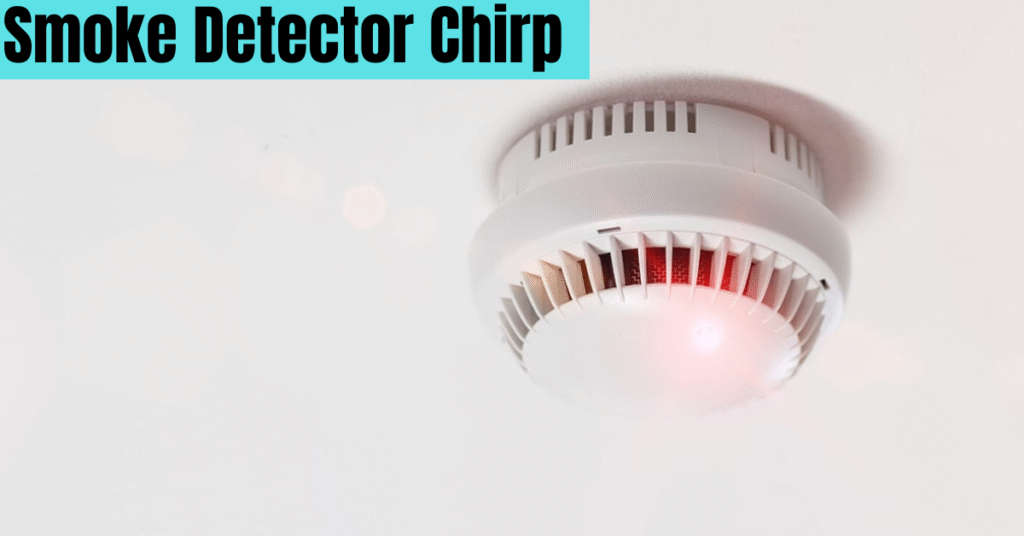Hearing a smoke detector chirp in your home can be annoying, especially when it happens late at night. That short, repetitive sound is not random—it’s your smoke detector’s way of alerting you to an issue that needs attention. Knowing why your smoke detector chirps and how to fix it is important for both safety and peace of mind.
Why Is My Smoke Detector Chirping?
- A chirping sound is different from the loud, continuous alarm that goes off during smoke or fire. It’s usually a single beep every 30 to 60 seconds. Here are the common reasons:
- Low Battery – This is the most frequent cause. Most smoke detectors are designed to chirp when their battery power gets low. Even hardwired models have backup batteries that need to be checked.
- Battery Pull-Tab Still in Place – For new smoke detectors, make sure the battery pull-tab has been removed completely.
- Battery Drawer Not Closed Properly – If the battery compartment is not fully closed, the detector may sense it as a missing battery.
- End of Life Warning – Smoke detectors generally last 8 to 10 years. A consistent chirp may mean it’s time to replace the device.
- Environmental Issues – Dust, insects, or high humidity can affect the sensor and cause chirping.
- Power Problems (Hardwired Units) – A loose wire or power interruption can lead to chirping in hardwired detectors.
How to Stop a Smoke Detector from Chirping
Here are practical steps to resolve the problem:
- Replace the Battery – Take out the old battery and insert a new one of the recommended type.
- Check the Manufacture Date – Look at the back of the detector. If it’s over 10 years old, replace the entire unit.
- Clean the Detector – Dust and debris can be removed with a vacuum or compressed air.
- Inspect Hardwired Connections – Ensure all wires are secure. If you’re unsure, contact a professional.
- Reset the Unit – Press and hold the test/reset button for 15 to 30 seconds to clear any minor faults.
Tips to Prevent Future Chirping
- To keep your smoke detector working properly and avoid false chirps:
- Replace batteries once a year or whenever daylight saving time changes.
- Test your smoke detectors monthly using the test button.
- Clean them regularly to prevent dust buildup.
- Replace smoke detectors every 10 years, even if they appear to work.
Why You Should Not Ignore a Chirping Smoke Detector
It may be tempting to remove the battery to stop the noise, but this can leave your home unprotected. A chirping smoke detector is a warning that the device may fail during an emergency. Prompt action ensures your family’s safety.
Conclusion
A smoke detector chirp is a small but vital signal. Whether it’s a battery change or a full replacement, addressing it quickly keeps your home safe. Routine maintenance and attention to your smoke detectors can prevent false alerts and, more importantly, save lives.

